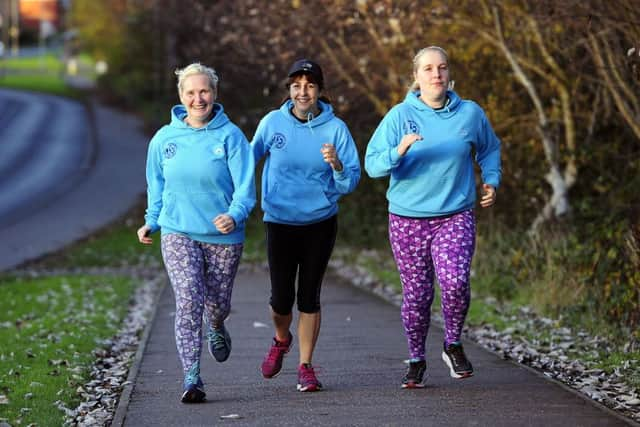Kevan Christie: Time to crack some of the myths about cholesterol


The drug evolocumab approved by the Scottish Medicines Consortium last month was found to reduce the risk of a heart attack by 27 per cent in high-risk patients already taking statins. Evolocumab is a drug given by injection that lowers low-density lipoprotein (LDL) “bad” cholesterol levels by inhibiting an enzyme called PCSK9.
This enzyme hinders the liver’s ability to remove LDL cholesterol from the body – stopping it working increases the liver’s effectiveness.
Advertisement
Hide AdAdvertisement
Hide AdThe drug has already been found to reduce LDL cholesterol levels by around 60 per cent. It’s currently licensed for use in people with high cholesterol who are either intolerant of statins or haven’t achieved sufficient reduction in LDL cholesterol with statins alone.
However, the drug is expensive – believed to be costing the NHS around £2,000 per annum – with the results needing careful consideration as to which patients should be targeted.
So often the discussion around cholesterol comes down to a basic ‘bad versus good’ debate with the public none the wiser as they line up to get their finger pricked by the local chemist.
However, a total cholesterol test will tell you practically nothing about your health unless it is broken down into how much high-density lipoprotein (HDL) and low-density lipoprotein (LDL) you have.
LDL is the bad cholesterol – the type that can stick to the inner walls of arteries and form plaque which leads to blood clots, strokes, cardiovascular disease and heart attacks. Your LDL number should ideally be less than 100 mg/dl.
A degree of confusion now surrounds cholesterol which has led to a number of myths growing particularly where food is concerned.
Chief among the misconceptions is the common believe that high cholesterol is caused solely by what you eat – this is simply untrue.
There are a number of factors that can contribute, including the usual suspects smoking, lack of physical activity, high alcohol intake or having kidney or liver disease. Genetics also play a significant part in your liver’s ability to regulate cholesterol to a healthy level with a number of inherited conditions that can lead to high cholesterol levels. Familial hypercholesterolaemia, or FH, is one of these inherited conditions. In people with FH, an altered gene can lead to exceptionally high LDL-C levels – it affects at least 1 in every 500 people in the UK.
Advertisement
Hide AdAdvertisement
Hide AdThe big cholesterol lie around food until recent times concerned eggs, with misinformation making Edwina Currie’s “most of our eggs are infected with salmonella” crusade back in the 1980s look tame in comparison. In truth dietary cholesterol found in eggs has little to do with the amount of cholesterol present in the body.
According to the cholesterol charity HEART UK most people do not need to limit their egg intake, even if they have high cholesterol.
Cutting back on saturated fat will also naturally limit dietary cholesterol – that means less cakes, pastries and puddings.
Despite the latest developments with new drugs the tried and tested methods will always apply to heart health – exercise, diet and avoiding smoking and excess alcohol.
It’s early days for evolocumab with cost being a huge factor in its availability that needs to be weighted against the benefits for those at very high risk of heart disease. The findings are significant, but no one is getting a pass.